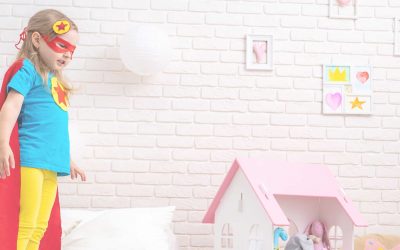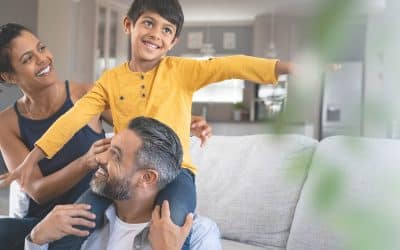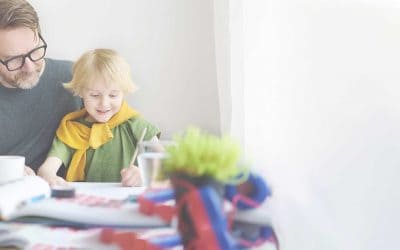Here are 5 great tips to get your child’s sleep schedule back on track
School is fast approaching once again, which means relaxed summertime schedules are coming to an end. So now is a great time to start getting your child back on a regular sleep schedule and routine so that they are ready to start the first day with a smile on their face.
If the sleep schedule in your house has become a bit relaxed over the summer months, here are 5 tips to help your child get back on a good sleep schedule and routine for school.
Ensure Your Child is Getting the Recommended Amount of Sleep
We all know how important sleep is for the developing mind of a child. The amount of sleep they get impacts their growth, learning, and problem-solving skills. The school board faces this problem every year when children and even school staff return to school.
A tired child is less able to concentrate or recall important information. The school district suggests before the start of school, make sure your child is getting the recommended amount of sleep to set them up for success. How much sleep do kids need?
The Canadian Paediatrics Society and American Academy of Pediatrics recommend that preschoolers and school-aged children should be getting about 10-12 hours of sleep in a 24-hour period.
The Canadian Paediatrics Society and American Academy of Pediatrics recommends that preschoolers and school aged children should be getting about 10-12 hours of sleep in a 24 hour period.
Gradually Move Sleep and Wake Schedules Earlier
Often bedtimes and wake times become later during the summer months, making getting up early on that first day of school really difficult.
To help your child get used to waking earlier again, gradually adjust their bedtime and wake time about 2 weeks before the start of school. This allows their internal clock to adjust without too many side effects and ensures they have enough time for a good breakfast before school!
Remove Electronics from the Bedroom
Help your child get back into their sleep schedule and routine by removing all electronics from the bedroom. Research shows that the blue light emitted from electronics, such as TVs, computers, tablets, or smartphones, suppresses the production of melatonin, which is the body’s natural sleep-inducing hormone.
It’s important to turn these devices off at least 1-2 hours before bed so that their bodies can wind down and get ready for sleep.
Limit your child’s caffeine intake after lunch to ensure they fall asleep at their regular bedtime. It’s always a good idea to limit sugar too.
Limit Caffeine and Sugary Treats
Parents often allow more junk food during the summer months, which often has a lot of caffeine. Your children may not have a coffee habit, but there is enough caffeine in pop and chocolate to keep your child awake past their bedtime.
Limit your child’s caffeine intake after lunch to ensure they fall asleep at their regular bedtime. But, of course, it’s always a good idea to limit sugar too.
Dim the lights in the home about an hour before bed, and use some room darkening blinds to keep the evening light out.

Get Back into a Relaxing Bedtime Routine
With the start of the school year just around the corner, it’s a great time to re-evaluate your bedtime routines and get back into the habit of a wind-down ritual before bed.
Your child’s routine can include a few or many steps to help them relax. For example, dim the lights in the home about an hour before bed, and use some room darkening blinds to keep the evening light out.
Public Health for Students in the 2021 2022 School Year
In-person learning is more beneficial to children. Most skills are better translation in person. During the quarantine period, children and parents realized how much they missed school. It doesn’t matter what grade level; everyone missed school. It’s considered good for your well-being to be around others.
Due to covid 19, close contact with students is a major concern. The top priority for the schools is to prevent the spread. Close contacts require mask-wearing and students to keep a safe distance. Public health suggests all students go to a medical provider and get tested right away if showing any symptoms of covid before returning to school.
FAQs – Frequently Asked Questions
What are helpful resources for sleep-deprived children?
-Teaching children the importance of healthy sleep, along with a list of tactics to help a sleep-deprived child, can be helpful. Actions such as avoiding naps in the afternoon and reducing caffeine intake later at night are great ways for children to get more restful nights.
Additionally, cutting down on afterschool activities that aren’t essential will give them the time they need to unwind before going into bed at their regular times each evening.”
Why does my child’s school keep telling me they fall asleep in class?
There are many ways to stay awake in class, including getting up and moving around, breathing some fresh air, drinking plenty of water, participating more actively by asking questions, or staying involved with the topic at hand.
It is also important to stick to a sleep schedule that will help you wake up on time for your classes each day; this includes sleeping early enough so as not to be tired during
Lastly but certainly not least importantly: get some natural sunlight first thing every morning before class – it will energize your little one throughout school.
What is the best back-to-school plan for getting kids back on their sleep schedule?
Your child should try waking up fifteen minutes earlier and going to sleep fifteen minutes earlier than they have been doing for the summer.
By the first day of school, your kid will be adjusted to this new schedule so that there is no hassle when it comes time to go back after a long break!
#YouGotThis
Dina is a wife, mother of 4, and adrenaline junky. She loves to share children’s health information from her professional and personal experience. More About Dr Dina.













